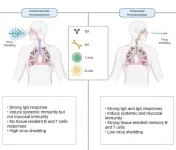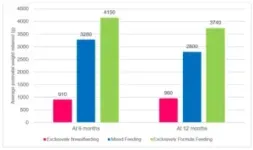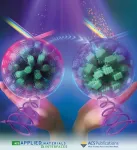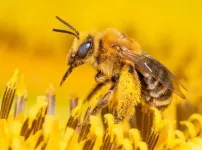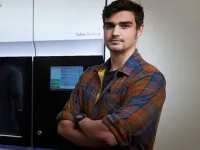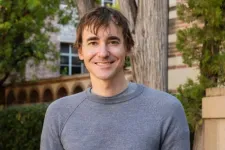(Press-News.org)
A next-generation COVID-19 mucosal vaccine is set to be a gamechanger not only when delivering the vaccine itself, but also for people who are needle-phobic.
New Griffith University research, published in Nature Communications, has been testing the efficacy of delivering a COVID-19 vaccine via the nasal passages.
Professor Suresh Mahalingam from Griffith’s Institute for Biomedicine and Glycomics has been working on this research for the past four years.
“This is a live attenuated intranasal vaccine, called CDO-7N-1, designed to be administered intranasally, thereby inducing potential mucosal immunity as well as systemic immunity with just a single dose,” Professor Mahalingam said.
“The vaccine induces strong memory responses in the nasal mucosa offering long-term protection for up to a year or more.
“It’s been designed to be administered as single dose, ideally as a booster vaccine, as a safe alternative to needles with no adverse reactions in the short or long term.”
Live-attenuated vaccines offer several significant advantages over other vaccine approaches.
They induce potent and long-lived humoral and cellular immunity, often with just a single dose.
Live-attenuated vaccines comprise the entire virus thereby providing broad immunity, in contrast to a single antigen which is used in many other vaccine platforms.
Lead author Dr Xiang Liu said the vaccine provides cross-protection against all variants of concern, and has neutralising capacity against SARS-CoV-1.
“The vaccine offers potent protection against transmission, prevents reinfection and the spread of the virus, while also reducing the generation of new variants,” Dr Liu said.
“Unlike the mRNA vaccine which targets only the spike protein, CDO-7N-1 induces immunity to all major SARS-CoV-2 proteins and is highly effective against all major variants to date.
“Importantly, the vaccine remains stable at 4°C for seven months, making it ideal for low- and middle-income countries.”
The vaccine has been licensed to Indian Immunologicals Ltd, a major vaccine manufacturer.
Dr. K. Anand Kumar, co-author of the publication and Managing Director of Indian Immunologicals Ltd. Said: "We are a leading ‘One Health’ company that has developed and launched several vaccines for human and animal use in India and are currently exporting to 62 countries.”
“We have completed all the necessary studies of this novel COVID-19 vaccine which offers tremendous advantages over other vaccines.
“We now look forward to taking the vaccine candidate to clinical trials.”
Professor Lee Smith, Acting Director of the Institute for Biomedicine and Glycomics, said he was delighted with the research findings.
“These results towards developing a next-generation COVID-19 vaccine are truly exciting,” Professor Smith said.
“Our researchers are dedicated to providing innovative and, crucially, more accessible solutions to combat this high-impact disease.”
The paper ‘A single-dose intranasal live-attenuated codon deoptimsed vaccine provides broad protection against SARS-CoV-2 and its variants’ has been published in Nature Communications.
END
A research group led by Nagoya University has developed an innovative approach to creating anti-counterfeiting labels for high-value goods. Their findings, published in ACS Applied Materials & Interfaces, enhance the security of the currently used cholesteric liquid crystals (CLCs) by adding fluorescent dyes to produce florescent CLCs (FCLCs).
Using this unique technology, the group created unique labels with almost impossible-to-counterfeit security features. These advanced labels are designed to protect valuable items, important documents, and sensitive products ...
The Beckman Institute for Advanced Science and Technology funded two research projects in 2024 as part of its research seed grant program. The program supports interdisciplinary research projects and is now in its second year.
This year, two research projects beginning in May 2024 received $75,000 per year for up to two years.
Research projects seeded by the Beckman Institute anticipate growth and typically lead to external funding proposals after the two-year seeding term.
Exploring how ASD-related genes influence brain networks that guide behavior
The CDC estimates that “1 in 36 children has been identified with autism spectrum disorder,” or ASD.
ASDs ...
A team of researchers led by Rutgers University-New Brunswick scientists has analyzed crop yields of more than 1,500 fields on six continents, and found that production worldwide of important, nutritionally dense foods such as fruits, vegetables, nuts and legumes is being limited by a lack of pollinators.
The results, detailed in Nature Ecology & Evolution, showed that across diverse crops and locations, one-third to two-thirds of farms contain fields that aren’t producing at the levels they should be due to a lack of pollinators. The phenomenon of a low crop yield because of insufficient visits by insects is known as pollinator limitation.
The ...
The American Meteorological Society is proud to announce its 2025 Awards and Honors, recognizing outstanding contributions to the weather, water, and climate community. 2025 recipients will be honored at the 105th AMS Annual Meeting in New Orleans, 12–16 January, 2025.
“One of our key priorities at AMS is to recognize the work of our global weather, water, and climate enterprise for the impact they have on scientific advancement and public safety, as well as on economic growth for all communities,” says Awards Oversight Committee Chair ...
BOZEMAN – Scientists at Montana State University have been studying unique immune systems for decades, and a research team in the Department of Microbiology and Cell Biology took another step forward with work described in a paper published in the highly regarded journal Nature.
The Aug. 7 paper, titled “A virally-encoded tRNA neutralizes the PARIS antiviral defense system,” was fast-tracked for publication by the journal due to the importance of the findings. MSU doctoral student ...
The National Institutes of Health (NIH) and the higher education non-profit VentureWell have selected 11 winners and five honorable mentions in the Design by Biomedical Undergraduate Teams (DEBUT) Challenge, who are set to receive prizes totaling $160,000. The awards will be presented to the winning teams on Oct. 25, 2024, during the annual Biomedical Engineering Society conference in Baltimore.
Now in its 13th year, the annual DEBUT Challenge calls on teams of undergraduate students to identify ...
Three distinct problems in data science — trend identification in graphs, the quantitative study of scientific literature and evaluation of single-cell genomics — will all be addressed by new research in large-scale network analytics, jointly led by Distinguished Professor David Bader at New Jersey Institute of Technology.
The problems have a common challenge of finding patterns, known as community detection, from inside incredibly large datasets. Work is funded by a $648,000 National Science Foundation grant, Cyber-Infrastructure ...
Researchers from the California NanoSystems Institute at UCLA and their colleagues have received a one-year, $1 million grant as part of a new National Science Foundation program aimed at accelerating the development and commercialization of quantum technologies for the benefit of society.
The Quantum Sensing and Imaging Lab, or Q-SAIL, which will be led by UCLA quantum physicist David Leibrandt, is one of five pilot projects across the country selected by the NSF to participate in the agency’s new National Quantum Virtual Laboratory, a first-of-its-kind national resource to enable the faster ...
SAN FRANCISCO—Viruses are tricky to keep up with. They evolve quickly and regularly develop new proteins that help them infect their hosts.
These rapid shifts mean that researchers are still trying to understand a multitude of viral proteins and precisely how they increase viruses’ infecting abilities—knowledge that could be crucial for developing new or better virus-fighting treatments.
Now, a team of scientists at Gladstone Institutes and the Innovative Genomics Institute led by Jennifer Doudna, PhD, have harnessed computational tools to predict the three-dimensional shapes of nearly 70,000 viral ...
A new era at the University of Virginia’s School of Data Science officially kicked off, as the inaugural class of data science undergraduate majors arrived for orientation on the eve of UVA’s first day of classes.
Throughout the day at the new School of Data Science building, students heard from faculty and staff, learned more about their curriculum, took headshots and a group photograph, and began to familiarize themselves with classrooms and other features of the facility that would be their academic home.
The day also served as a call to action, as students learned not only what requirements would be needed to complete their degree but what a data ...
